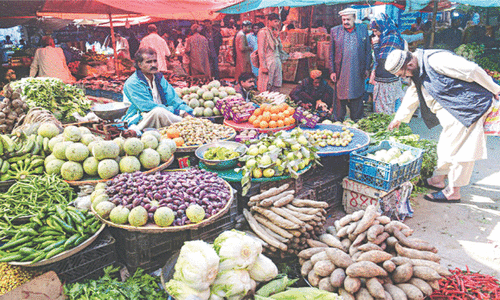ISLAMABAD: The World Bank has estimated that Pakistan can save about four per cent of gross domestic product through proper fiscal management and revenue generation by taking benefit from the process of devolution.
The Pakistan Federal Public Expenditure Review (PER) 2023, launched on Friday, highlights that the country’s fiscal deficit has been persistently large and growing, posing risks to fiscal and debt sustainability.
This is the first PER report since 2010 and also the first one at a federal level since the implementation of the 18th Constitutional Amendment and the seventh National Finance Commission (NFC) Award in 2010.
The World Bank has said that the 18th Amendment and the NFC Award represented a major shift in the country’s national fiscal architecture.
The report says that while the provinces together have been typically running small fiscal surplus over the fiscal year 2010-22, the federal government has been consistently running large budget deficits.
“The 18th Amendment and 7th NFC Award together have resulted in significant vertical fiscal asymmetry,” it says.
There is a persistent overall significant budget shortfall at the general government level, and the report focuses on reducing the federal government budget shortfall as it is overwhelmingly the dominant contributor to the national fiscal deficit.
The report examines core public finance issues at federal level, including rationalising fiscal expenditures and enhancing domestic revenue collection.
It first provides an overview of Pakistan’s macroeconomic and fiscal context and highlights the importance of fiscal and debt sustainability.
It also includes deep dives into two areas that drive the two largest federal expenditure categories that are debt management and their impact on federal interest payments and fiscal support to state-owned enterprises (SOEs), which constitutes a significant portion of subsidy spending.
Improving SOE management also reduces contingent liabilities and fiscal risks from SOEs, which have been growing in recent years.
The World Bank has also warned that the high government borrowings have made the financial sector vulnerable to high risks depending upon the financial health of the government, whereas Pakistan’s tax system has a narrow tax base with high tax rates.
The report says that averaging at 6.2pc of GDP over the past decade, the deficit has also been growing, with the post-2010 annual average being 50pc larger than its pre-2010 average.
It says rationalising and reducing Pakistan’s fiscal deficit was critical to regaining fiscal and debt sustainability, as both deficit and debt levels were in breach of the fiscal rules stipulated by the Fiscal Responsibility and Debt Limitation Act.
It adds that high levels of fiscal deficits and public debt have adverse effects on the economy, as they contribute to macroeconomic volatility, crowds out public and private investment, and thus weigh on long-term economic growth.
The PER23 says the continued sizeable fiscal deficits have contributed to a build-up of public debt held by the domestic financial sector. In July 2022, more than 70pc of all bank credit was extended to the public sector, reflecting a deep sovereign–financial sector nexus.
“Therefore, the health of Pakistan’s financial sector has become intertwined with the financial health of the government, heightening financial sector risks in the event of a severe fiscal shock,” it says, adding that credit extended by the banking sector to government rose by more than 400pc over the fiscal year 2011–21 and it has crowded out private investment.
The report has also added that public development spending was low and the low levels of investment have been a driving factor to Pakistan’s recurrent boom-bust cycles and have contributed to low growth in productivity, potential output, and employment.
“Reducing energy and commodity subsidies can minimise poorly targeted and regressive spending,” PER23 says.
Regarding avenues through which revenue collection can be enhanced, it says that despite various reform efforts, revenue collection has been stagnant over time and remains low in international comparison.
It notes that Pakistan’s tax system is complex, has a narrow tax base and high tax rates, and it has many vested interests.
“To raise more revenue in a sustainable manner, the tax system needs to be simplified, the tax base broadened, and the burden on compliant taxpayers concurrently reduced,” it says.
Published in Dawn, April 15th, 2023














































Dear visitor, the comments section is undergoing an overhaul and will return soon.